Uganda
UN experts have established that the ADF rebels active in the east of the DRC and accused of Friday's attack on a high school in Uganda were receiving financial support from the Islamic State (ISIS) group and were seeking to expand their area of operations, according to a report consulted by AFP on Monday.
One of the many armed groups scouring the eastern Democratic Republic of Congo, the ADF (Allied Democratic Forces) are among the deadliest, accused of killing thousands of civilians.
Originally Ugandan rebels, mostly Muslim, who have been present in the DRC since the 1990s, they pledged allegiance in 2019 to the ISIS, which claims responsibility for some of their actions and presents them as its "central African province" (ISCAP).
But their funding by the ISIS had not been documented until now.
In its latest report, due to be released this week, the UN panel of experts on the DRC says that the EI has "provided financial support to the ADF since at least 2019, through a complex financial system involving individuals in several countries on the continent, emanating from Somalia and passing through South Africa, Kenya and Uganda".
The experts also state that the ADF have "sent fighters and/or collaborators on reconnaissance missions in an attempt to extend their area of operations beyond the provinces of North Kivu and Ituri".
According to them, "they have sought to recruit and carry out attacks in Kinshasa" as well as in the Congolese provinces of Tshopo, Haut-Uélé (north-east) and Sud-Kivu.
Ugandan officials accuse the ADF of carrying out a raid on a Ugandan secondary school near the Congolese border on Friday night, which left at least 41 people dead.
Uganda and the DRC launched a joint offensive in 2021 to drive the ADF out of their Congolese strongholds, but have so far failed to put an end to the group's attacks.
The UN experts also devote a large part of their study to Rwanda's support for the M23 rebels in North Kivu, which they had already established in previous reports, although Kigali denies this.
They state that they have "obtained further evidence of direct interventions by the Rwandan Defense Forces (RDF) on DRC territory" and "identified several RDF commanders and officials coordinating RDF operations in the DRC".
They note that "the security and humanitarian situation in the provinces of Ituri, North Kivu and South Kivu has continued to deteriorate".
Rwandan support for M23
The UN experts also devote a large part of their study to Rwanda's support for the M23 rebels, which they had already established in previous reports, although Kigali denies this.
A predominantly Tutsi movement, the M23 ("March 23 Movement") took up arms again at the end of 2021 and conquered large swathes of territory in North Kivu.
They say they have "obtained further evidence of direct intervention by the Rwandan Defence Forces (RDF) on DRC territory" and "identified several RDF commanders and (Rwandan) officials coordinating RDF operations in the DRC".
An East African regional force is deployed in the M23 area of operations and, under its supervision, the rebels have announced their withdrawal from certain positions.
But, according to the experts, "the withdrawals and disengagements announced appear to have been temporary and tactical, mainly to gain time in the face of growing international pressure".
The UN-mandated experts also claim that the M23 has "tried to win allies in South Kivu" among militias reputed to be pro-Rwandan, "with the aim of opening a front" in this province neighbouring North Kivu.
Generally speaking, the report notes that "the security and humanitarian situation in the provinces of Ituri, North Kivu and South Kivu has continued to deteriorate significantly".
It adds that a new outbreak of inter-community violence appeared last year in the west of the DRC and refers to a "tense" political situation in the run-up to the elections scheduled for December.



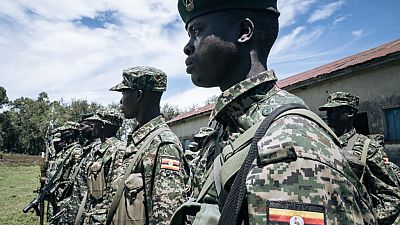

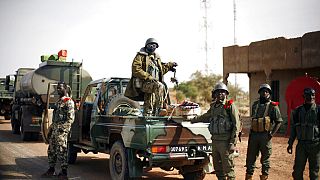
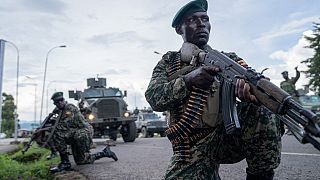
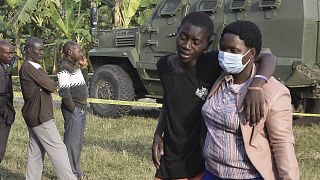
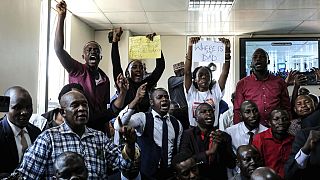
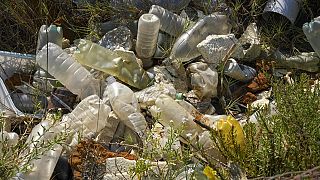
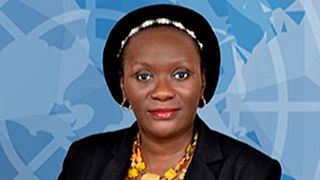



01:00
Displacement crisis deepens: UN warns world at breaking point
Go to video
Joseph Kabila’s return: Political comeback or threat to national unity?
Go to video
M23 and Congolese government agree to halt fighting, work towards peace
Go to video
Paris concert shines light on Congo's 'silent' war
01:06
UN warns of deepening Haiti crisis
Go to video
DRC: Goma Christians celebrate Easter under rebel rule